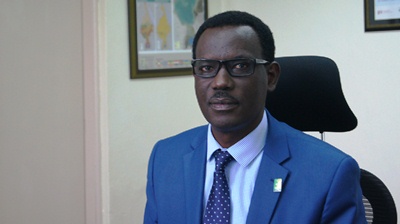What is the value of water?
By Innocent Ntabana
When you and I breathe in fresh air, the amount I inhale affects you in no way. This is because air is abundant and so there’s plenty of it to go around. We actually take it for granted since it exists in copious amounts. Now, imagine a situation where there is limited supply of air, and yet, several pairs of lungs are waiting for their share. What do you think would happen? What would we do? Would we use it all up and suffocate, or would all those concerned brainstorm on how best to utilise this scarce resource while preserving its quality? One thing for sure, is that we would all realise how valuable it is when its supply is threatened.

Economic growth, for example, has agriculture as its biggest driving force in most of the countries in the Nile Basin. This sector employs about 80 percent of the population in mostly upstream Nile Basin countries and accounts for up to 90 percent of water withdrawals, in Egypt and Sudan.
Considering the limited supply of water and how important it is for not only irrigation but all aspects of life, what value can be attached to water? Take this scenario; In order to practice agriculture, a farmer needs water, capital, labour and land in varying quantities. If two different farmers, farmer A and farmer B grew wheat and cassava, they’d have to take the amount of the four factors invested into the business in order to determine the price of the goods.
Imagine that the production of a kilogramme of wheat and cassava costs farmer A $50 and $70, respectively, while they cost farmer B $60 and $40, respectively. Customers would obviously go to the one with a lower price. And yet, the two farmers cannot lower their prices any further because the cost of production would outstrip the cost of sale by far.
If, say, farmer B shifted to growing cassava, which is a lot cheaper for him to produce than wheat, he’d be wise to continue specialising in it, while farmer A specializes in wheat production. Farmer B would have a comparative advantage in growing cassava than he did in wheat, which would bring down his costs considerably. In this case, the two farmers are maximising benefits from the water based on comparative advantage, which is the efficient use.
It is, however, important to note that factors such as geographical location and climate change greatly contribute to a farmer’s comparative advantage.
A crucial policy environment that the two farmers need in such a situation is the facilitation of exchanging the surpluses of the two goods.
Likewise, if the countries in the Nile Basin cooperated to engage in one activity and produced that product for which they have a comparative advantage, this would encourage trade amongst the Member States as well as maximise water usage. Such cooperation would ensure food security because countries would produce more crops by taking into consideration factors such as the hydrology of the water resource.
To this end, healthy competition is best when it comes to scarce resources.
Water is essential to life, making its total economic value immeasurable. Just because there’s no price doesn’t mean there’s no value.
The writer is the Executive Director, Nile Basin Initiative Secretariat
Email: [email protected]
